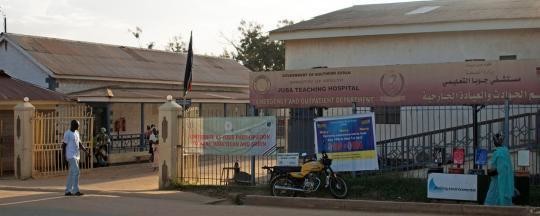South Sudan’s main hospital, Juba Teaching Hospital, located at the heart of the national capital, has been without electricity over seven days, resulting in harsh criticism from medical practitioners and people looking after patients.
Several officials at the national ministry of health and at the Juba Teaching Hospital in a series of interviews on Sunday and Monday confirmed the outage in power supply in the main hospital.
“The ministry of finance is aware of lack of electricity at Juba Teaching Hospital for the last few days. The ministry of health brought it to the attention of the ministry of finance and the officials at the ministry of finance are working on it. It will be resolved as soon as possible,” a senior official at the national health ministry said on Monday when asked what the ministry was doing about the outage.
A senior official in the government protested the power outage in the main hospital, asserting that he and several others have had to use torches to allow medical doctors to attend to patients.
“This is extremely pathetic situation beyond imagination. The situation we have reached as a country is beyond human imagination. That the main hospital goes without power is not a normal thing, even in the worst situation the hospital has always remained one of the last institutions to run out of power,” he said.
He said family members and relatives of the patients seeking operations are required to bring the fuel to enable the doctors to put on the generator required to provide light for a particular operation.
“I was really surprised that the family members and relatives of the patient seeking operations are compelled to bring fuel to allow the generator to run if the operation is to be conducted. This is a situation which I have never witnessed even at the time of war when this hospital was under the rule of successive Sudanese governments in Khartoum,” he said.
“The Juba teaching hospital has never run out of power. It has always been one of the institutions which remain running throughout. Now if the family members and the relatives of the patients are the ones to provide fuel, what about those with no capacity to provide fuel?” asked the official, himself a member of the ruling Sudan People’s Liberation Movement.
Separately, Riek Gai Kok, Minister of Health, said in remarks broadcast on SSTV last week that the electricity for the hospital was not his responsibility, blaming city utility services.
Juba Teaching Hospital ran out of fuel for one month in December and January as well, resulting in the deaths of at least ten patients including newborn babies owing to lack of electricity.




